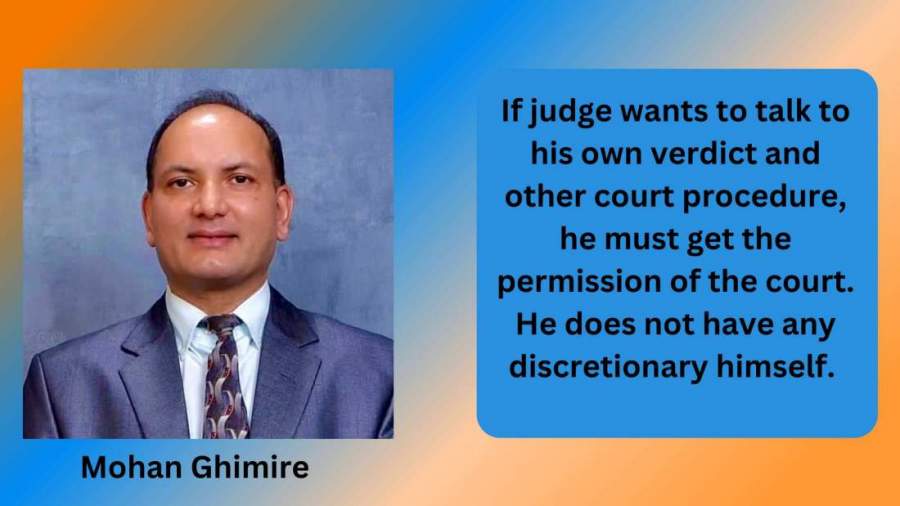

Introduction:
In the field of law, professionals have a significant responsibility to uphold ethical standards and maintain the trust and confidence of their clients, the legal system, and society at large. Two critical concepts that guide the behavior and decision-making of legal professionals are professional responsibility and conflict of interest. This essay aims to explore these concepts, their implications, and the delicate balance that legal practitioners must strike between fulfilling their professional duties and navigating potential conflicts of interest.
Professional Responsibility:
Professional responsibility in law refers to the ethical obligations and duties that lawyers have towards their clients, the court, and the legal profession. It encompasses a wide range of principles and rules that govern lawyers’ behavior, including competence, diligence, loyalty, confidentiality, and maintaining the attorney-client privilege. As well as a Judge must have highly responsibility of judicial code of conduct.
Legal professionals have a duty to provide competent representation to their clients. This entails possessing the necessary knowledge, skills, and expertise to handle the specific legal matter at hand. Lawyers must also exercise diligence in their work, acting promptly and efficiently to protect their clients’ interests.
Moreover, lawyers are required to be loyal and act in their clients’ best interests while avoiding conflicts of interest. This loyalty ensures that lawyers prioritize their clients’ needs and work diligently to protect and advocate for their rights within the boundaries of the law.
Conflict of Interest:
A conflict of interest arises when a lawyer or judge’s personal or financial interests clash with their duty to act in the best interests of their clients. It occurs when there is a substantial risk that the lawyer’s ability to exercise professional judgment will be compromised or influenced by their personal interests or relationships.
Conflicts of interest can manifest in various forms, such as when a lawyer represents multiple clients with conflicting interests, represents a client against a former client, or has a personal or financial stake in the outcome of a case. These conflicts can undermine the lawyer’s duty of loyalty and potentially harm the client’s interests, the legal system’s integrity, and public trust in the legal profession.
Striking the Balance:
Balancing professional responsibility and conflicts of interest is a delicate task that requires legal professionals to navigate complex ethical and practical considerations. While professional responsibility demands loyalty to clients, lawyers must also avoid compromising their independence and integrity by becoming embroiled in conflicts that may impair their ability to provide unbiased and effective representation.
To manage conflicts of interest, lawyers must exercise due diligence by conducting thorough conflict checks before taking on new clients or cases. This involves reviewing previous and existing client relationships, assessing potential conflicts, and taking appropriate steps to mitigate or avoid conflicts altogether.
Where conflicts arise despite precautions, lawyers should consider recusing themselves or obtaining informed consent from all affected parties after providing full disclosure of the conflict and its implications. This ensures transparency and allows clients to make informed decisions about their legal representation.
In instances where conflicts cannot be resolved, lawyers must prioritize their professional responsibility and decline representation or withdraw from the case to protect their clients’ interests and maintain the integrity of the legal system.
Judge:
A judge shall always act in a manner that promotes public confidence in the independence, integrity, and impartiality of the judiciary, and shall avoid impropriety and the appearance of impropriety.
Impropriety — actual impropriety includes violations of law, court rules, or provisions of the Code of Judicial Conduct.
Appearance of Impropriety — the test for appearance of impropriety is whether the conduct would create in reasonable minds a perception that the judge violated the Code of Judicial Conduct or engaged in other conduct that reflects adversely on the judge’s honesty, impartiality, temperament, or fitness to serve as a judge.
Decorum in Court — a judge shall require order and decorum in proceedings before the court.
Demeanor in Court — a judge shall be patient, dignified, and courteous to litigants, jurors, witnesses, lawyers, court staff, court officials, and others with whom she deals in an official capacity, and shall require similar conduct of lawyers, court staff, court officials, and others subject to the judge’s direction and control.
Communications with media— a judge shall not commend or criticize public news for any verdict other than in a court order or opinion in a proceeding.
Exception: Judgment Notwithstanding the Verdict
A judge shall not make any public statement that might reasonably be expected to affect the outcome or impair the fairness of a matter pending or impending in any court or make any nonpublic statement that might substantially interfere with a fair trial or hearing. Also current setting Judge cannot talk in public about court proceeding, dissatisfaction of the internal court procedure, any own verdict and other judge’s verdict. If judge wants to talk to his own verdict and other court procedure, he must get the permission of the court. He does not have any discretionary himself.
Pending Matter? — any matter that has commenced.
Impending Matter? — any matter that is imminent or expected to occur soon.
Conclusion:
Professional responsibility and conflicts of interest are integral aspects of the legal profession. Legal professionals have a fundamental duty to act in their clients’ best interests while upholding ethical standards and maintaining public trust. Successfully navigating potential conflicts of interest requires a proactive approach, diligent conflict checks, and the willingness to prioritize professional responsibility over personal or financial interests. By doing so, lawyers can ensure the highest level of advocacy, maintain the integrity of the legal system, and fulfill their crucial role in society.
Mr. Mohan Ghimire is a lawyer and writer.
Comment